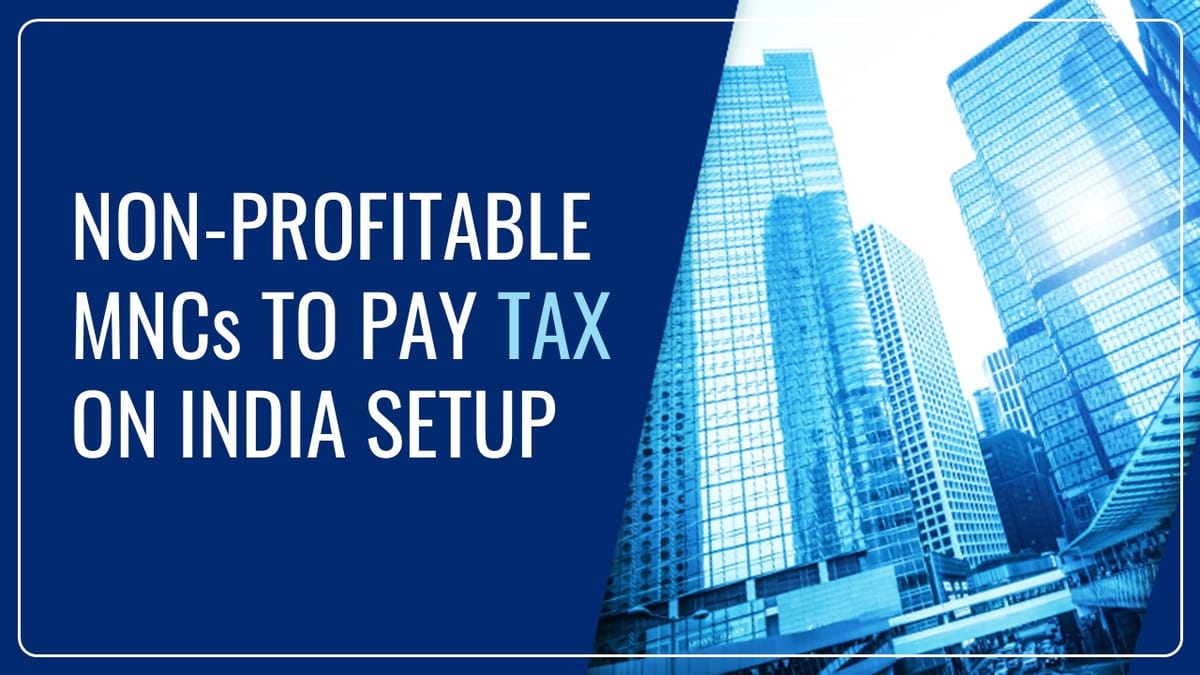MNCs that use various outfits in India or hire individuals to promote, operate and build their businesses in India would be required to pay taxes on such setups.
Reetu | Sep 21, 2024 |

Non-profitable MNCs obligated to pay Tax on India Setup
Multinational companies (MNCs) that use various outfits in India or hire individuals to promote, operate, and build their businesses in the Indian market would be required to pay tax on such setups, even if they show losses on their worldwide balance sheets.
This was decided by a three-judge bench of the Delhi High Court in a ruling that will have an impact on several MNCs that use liaison offices, subsidiaries, or fixed places such as a hotel room, these arrangements are known as ‘permanent establishments’ or PEs in tax parlance – to meet customers, negotiate prices, and market products and services.
The ruling which was issued on September 19, was in response to a petition filed by UAE-based Hyatt International Southwest Asia, which had a permanent establishment (PE) in India at the Hyatt Regency hotel in Delhi.
“The fact that a PE is intended to be an independent taxable entity cannot possibly be doubted or questioned,” said the ruling, adding that the source state (India in this case) cannot be denied the right to tax a PE, and this is not dependent on an entity’s overall and global financials.
A tax professional said, “This important judgment is consistent with the language and underlying concept of Article 7 of Tax Treaties dealing with the taxation of permanent establishments. The core assumption of Article 7(1) is that profits of a foreign firm with a PE in the source country are taxable in that country (source country) to the amount of ‘profits’ attributable to the PE. As a result, whether the foreign firms in question make profits or lose money on an ‘entity level’ should be irrelevant. This thorough decision also addresses several other essential principles and components of PE taxation under tax treaties.”
Profits attributable to such PEs are earnings generated in India but declared in the parent’s worldwide accounts rather than the books of the MNC’s Indian arms or organizations.
In a situation where the MNC reports losses in the global consolidated accounts, the earnings ‘attributable to India’ must be calculated using the principles of profit attribution and transfer pricing outlined in the Income Tax rules, which require a comparison of profit margins reported by peers in the business.
The significant component of the new decision is that an MNC would be required to pay tax on such profits in India regardless of the enterprise’s overall losses in other jurisdictions.
Upholding the view that a PE (of an MNC) is a “distinct and separate enterprise,” the court rejected Hyatt’s argument that if a foreign enterprise was losing money, the question of attributing any profit to its PE in India would not arise, and thus the enterprise would have no tax liability in India.
“This is a significant and profound ruling that relies on a variety of commentaries, including OECD and UN Model Conventions, as well as other key Supreme Court decisions, which may limit the possibility of a reversal at the Supreme Court. The revised position may now have an influence on many previously disposed cases as well as existing situations. Regardless of India’s global standing in terms of taxation, a full Indian attribution analysis is essential. Given the subjectivities involved, this could result in a new Pandora’s box of complex litigation”, another tax professional stated.
In case of any Doubt regarding Membership you can mail us at [email protected]
Join Studycafe's WhatsApp Group or Telegram Channel for Latest Updates on Government Job, Sarkari Naukri, Private Jobs, Income Tax, GST, Companies Act, Judgements and CA, CS, ICWA, and MUCH MORE!"